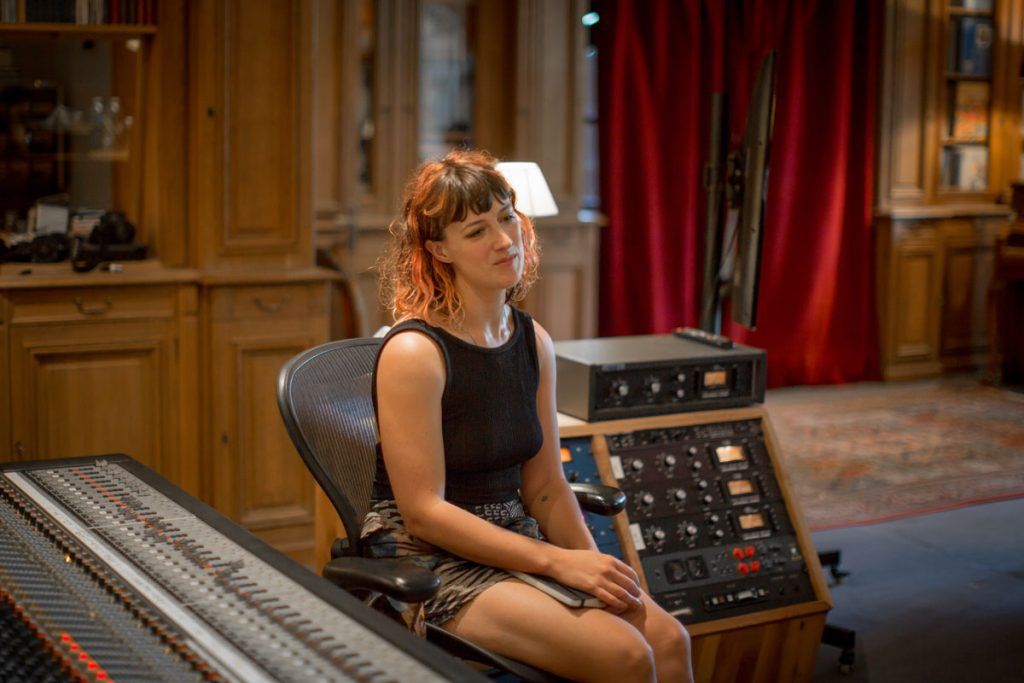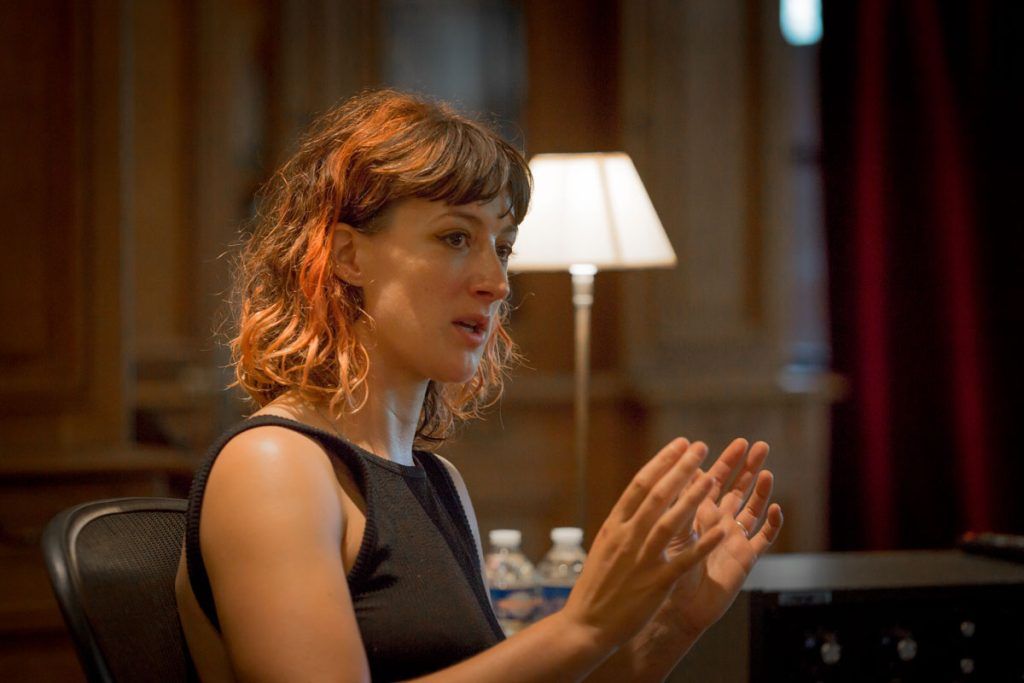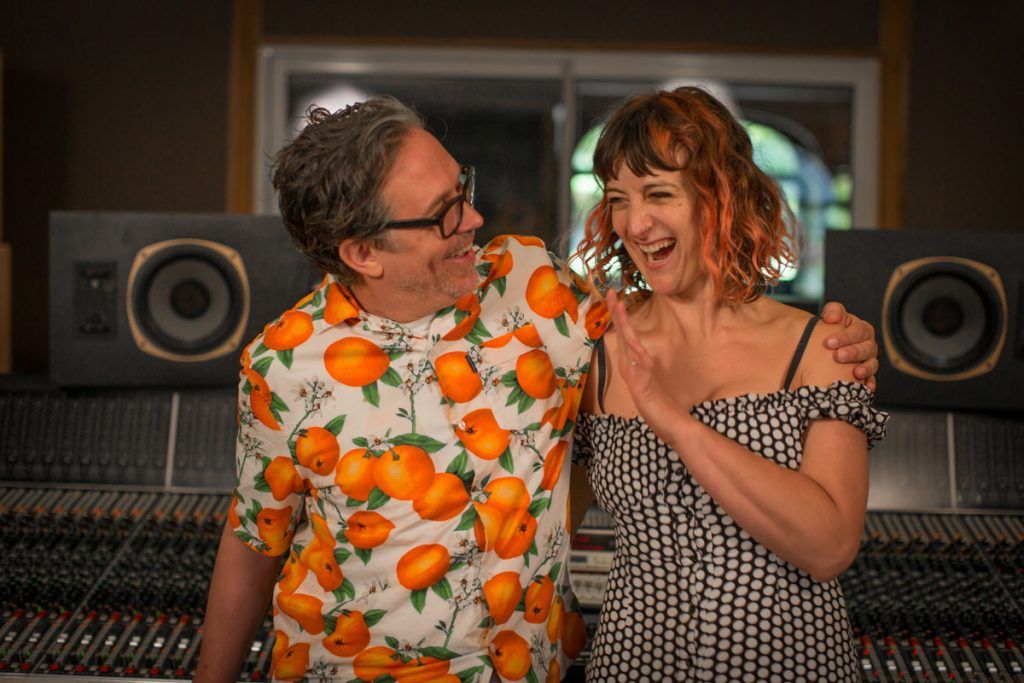Women in Pro Audio: Emily Magpie Women in Pro Audio: Emily Magpie...
“Those creative ‘a-ha!’ moments where you try something new, and it sounds incredible, meeting loads of lovely people and getting excited about sounds together are all things that make me love what I do.” – Emily Magpie
In this month’s Women in Pro Audio series, we’re moving away from the live event sector and catching up with someone who spends more of her time in the studio. An often misunderstood and crucial process in the life cycle of making music, a mastering engineer’s task is to ensure that an album is sonically cohesive and impactful and that it will play well in any format and through any medium.
Meet Emily
This month, we enjoyed interviewing a mastering engineer who produces high-quality digital masters. Based in Bristol, Emily Magpie of Emily Magpie Mastering has been a producer and artist for over seven years before she started specializing in mastering. She’s passionate about taking a creative and technical approach to give music the finish that makes it shine.
Emily didn’t know she wanted to get into sound engineering and producing until her twenties. “As a child, I recorded things on tapes, sped them up, and messed with them, but I was into a million different things. In my early 20s, I produced at home and loved it. Spending time submerged in sounds and carving them out became an obsession. I think a lot of producers feel that way! I’m a studio gremlin. I just kept doing it and making my own art.”
Emily started her audio industry journey as an artist and producer on her own project (Emily Magpie, now released on Def Pressé) years ago. “I was self-taught and so excited just to learn and immerse myself in production (I still feel the same way, to be honest!). It was quite a few years of learning through doing, very DIY, very imperfect, but very fun! I was self-releasing and getting great press and response. I eventually studied at dBs in Bristol under the brilliant Josh Hills (mastering engineer for Sony, EMI), who encouraged me and expanded my technical knowledge, enabling me to set up my company two years ago.”

How it Started
“I’ve always been headstrong and followed a path that felt right to me, but I didn’t really think about studying as an option. Despite my successes, I had an imposter syndrome that I wasn’t a ‘real’ producer, which is fairly common among women in the industry. It took me a while to feel ‘ready’ to offer my expertise and skills to others. On the flip side, it’s made me work hard on honing my skills, and I still hold to that innovative approach as something to be treasured as an engineer and producer!”
What She’s Doing Now
Emily’s broad range of experience within the industry has informed her approach to combining creativity with technical knowledge. “My work is now regularly featured and playlisted on BBC 1, 6 Music, The Line of Best Fit, etc. I work internationally with emerging artists, signed and established artists, and producers and labels. I am proud to be part of the growing 2% of women and gender minorities working as music producers, and I care deeply about supporting others in their journey.”
Emily continues, “I’ve worked with some incredible artists this year. Some of my favorite projects aren’t out yet, but one I am obsessed with is MYTBE. I mastered her EP, which was mixed/produced by Joel Anthony Patchett, and it was an absolute joy to spend time with it. I recommend listening out for her. One track I mastered that came out recently and that I love is Rock and a Calm Place by Antony Szmierek. It’s been on the A-List for BBC 6 and is doing massively well! It’s such a vibey-cool sound.”
Visibility
“Luckily, I work a lot with women and nonbinary people. I work with everyone, and I want everyone working with me to feel like they’re in a safe space, especially those communities. It’s not easy to be a minority in this industry. Mostly, my clients and the people I work with are amazing. I’ve had just one or two cases of mansplaining or an expectancy that I don’t know what I’m doing, which I found very frustrating. Visibility is one of the biggest challenges. Not seeing many people who looked like me in those spaces meant it took much longer for me to feel like I could be there.
As far as seeing more women in the industry is concerned, “It’s so important to keep building that visibility. That’s why features like this are amazing, and it is so wonderful to see companies like L-Acoustics with a large platform using it to support our communities. Joining the 2% Rising and SoundGirls communities is also an excellent way to foster more visibility for women in this industry. Chatting online with other women in the industry and supporting each other has been immeasurably beneficial for me. Also, providing more bursaries, encouragement, and workshops will help bring more women into this industry. Women need to feel like they have a right to be in these spaces.”

Why She Does It
Her favorite parts about what she does are listening to and making music all day and “Those creative ‘a-ha!’ moments where you try something new, and it sounds incredible, meeting loads of lovely people and getting excited about projects together. The creativity and imagination of what I do, hearing a track reach its destination, and having clients happy and receiving that glowing feedback from them. Some of my recent clients have delighted me that I get to be a part of their projects! It was a moment of pride when I got signed to a lovely label for my own releases. Receiving a scholarship from SoundGirls and Mix with the Masters was massive for me. Traveling to France was an adventure; everything felt like a whirlwind!”
A fun anecdote that happened to Emily was when she was “At Studios La Fabrique. We were a bit tipsy one night after dinner and singing out by the pond. Suddenly, a load of frogs started croaking in call and response to our song. We were all a little unsure if it actually happened!”
Mixing Tips
Regarding sound mixing tips, Emily suggests, “Mix with the Masters is amazing. I started off by watching their online videos. Hearing from those at the top of their field is so exciting and fills me with inspiration and ideas. I’m particularly into Jack Antonoff’s work at the moment. I won a scholarship to go to Studios La Fabrique in France last year to work with Craig Silvey (Florence + The Machine, IDLES, Sam Fender) via Mix with the Masters and SoundGirls, and that was one of the best learning and all-around experiences I’ve had! Craig is a legend; I use so much that I learned from him. His approach to playing and having fun and finding what is beautiful and ugly in the sounds resonated so much with me.”
Advice
“Find your communities and friends. Find other women who are brilliant at lifting each other up! Do what you need to build your confidence and skills- there are resources and workshops out there – and those communities are often good places to hear about them, too.”
Emily pivots to what skills other women should focus on: “Active listening is probably my number one piece of advice. Your ears are the most important thing. I have listened to music for a huge chunk of my life as it’s such a joy for me. I always hear interesting and inspiring production and engineering choices that wow me and make me want to try something new.”
She further suggests, “Learning your gear really well- whether it’s analog or plug-ins. Truly understand and know it. Having less gear, messing around with it for ages, and seeing what you can do with it is so much more valuable than a ton of gear you don’t know intimately.”
And lastly, “Don’t give up! There were points earlier in my career when I felt like I wasn’t good enough, so I should give up. It’s simply not true.”
Check out Emily’s website to see her portfolio.

Subscribe to Our Newsletter
Get the lastest news and find out about listening events.